Flat in Grade II-listed warehouse connected to the mysterious sinking of the Mary Rose on the market for £750k
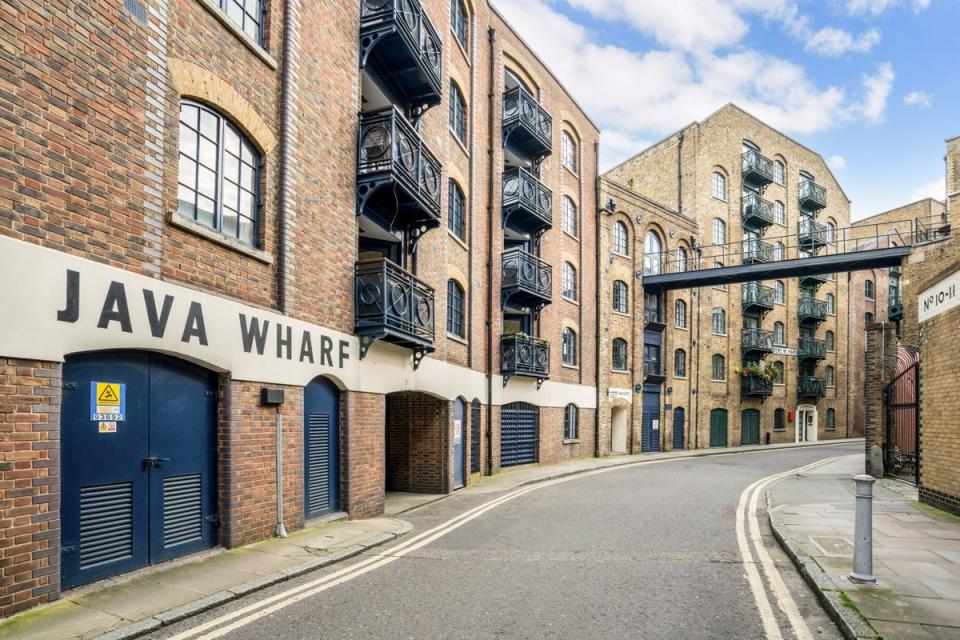
History buffs will be intrigued by the backstory of this apartment with views over the River Thames.
The final voyage of the Mary Rose, King Henry VIII’s favourite warship, famously went exceedingly poorly.
Fighting the French in the 1545 Battle of the Solent, the Mary Rose suddenly heeled over and seawater rushed into her open gunports.
She sank as the King looked on, and only 30 men of her 400-plus crew survived.
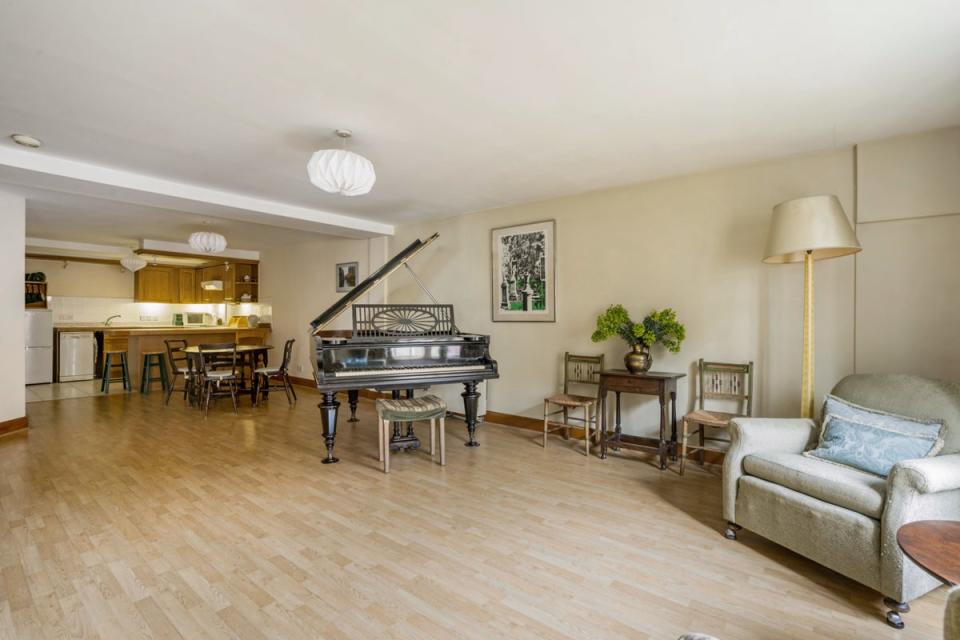
The exact reason for why the Mary Rose sank is a mystery, but the prevailing theory is the warship had been overloaded with heavy guns — the same munitions that were supplied by the gunpowder mill at Java Wharf in Southwark.
Now a one-bedroom apartment in the Grade-II listed warehouse on the site is on the market for £750,000 with Anderson Rose.
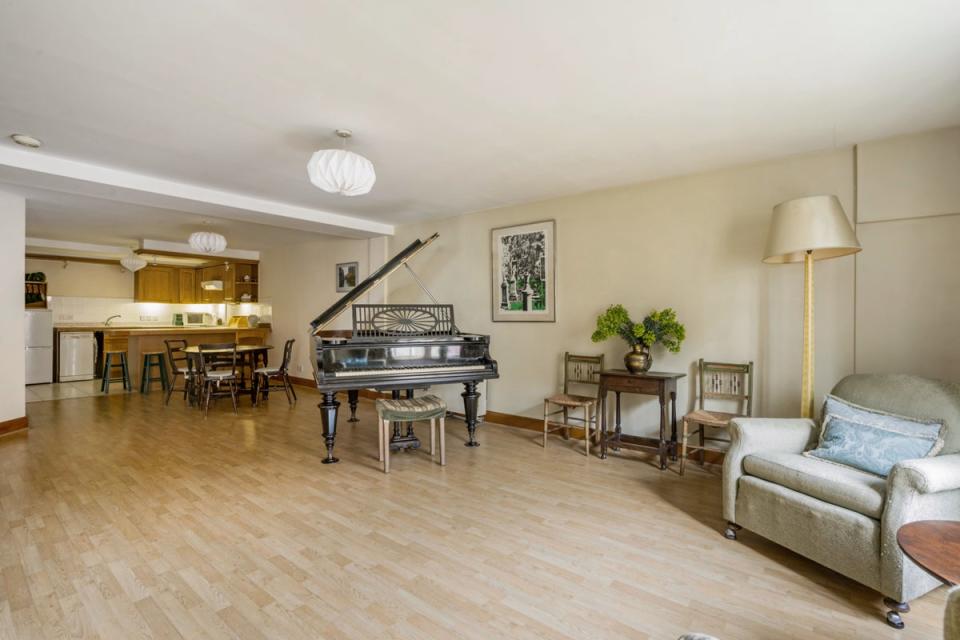
The Victorian-era warehouse occupies the site of England’s first water-powered gunpowder factory.
In the 13th century, the monks of Bermondsey Abbery built The Mill of St Saviour, a windmill on the bank of the River Neckinger. Now one of London’s underground lost rivers, the Neckinger flows into the River Thames.
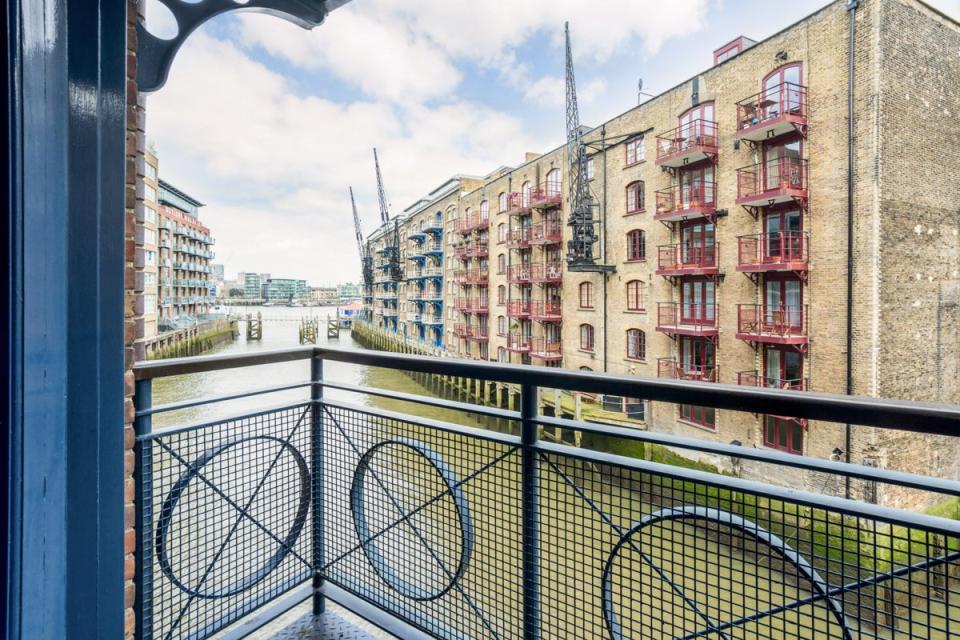
When King Henry VIII broke with Rome and dissolved the monasteries in 1536, the windmill became a watermill and was converted into a water-powered gunpowder factory to aid in the war against France.
The Mary Rose was also refitted for the war effort, adding the extra cannons and powder barrels that may have contributed to her sinking.
Java Wharf operated until the 18th century before being abandoned and later turned into a paper mill. The Victorians then built a warehouse on the site, which was in prime position to unload the goods pouring in from all corners of the British Empire.
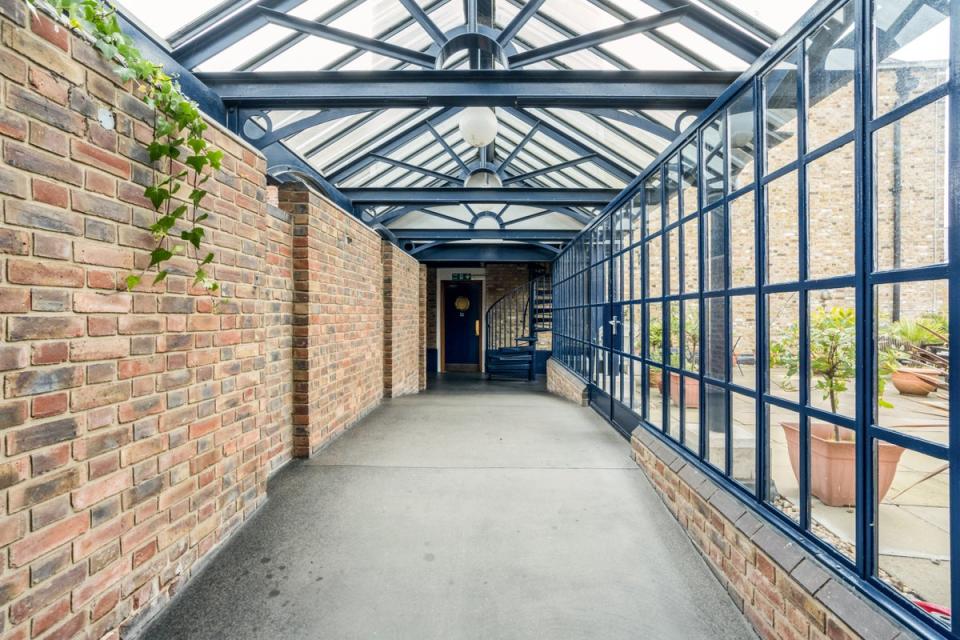
While the warehouse was converted into homes in the Eighties, the apartment blocks retain plenty of features from its industrial past.
There are exposed bricks displaying the ghosts of painted signs, with metal balconies and gantries projecting from the facade alongside the winches that would have been used to move shipments.
Spanning 1,000 square feet, the one-bedroom apartment has an open plan reception room with a fitted kitchen. The balcony overlooking the River Thames can be accessed by either the living area or directly from the bedroom.
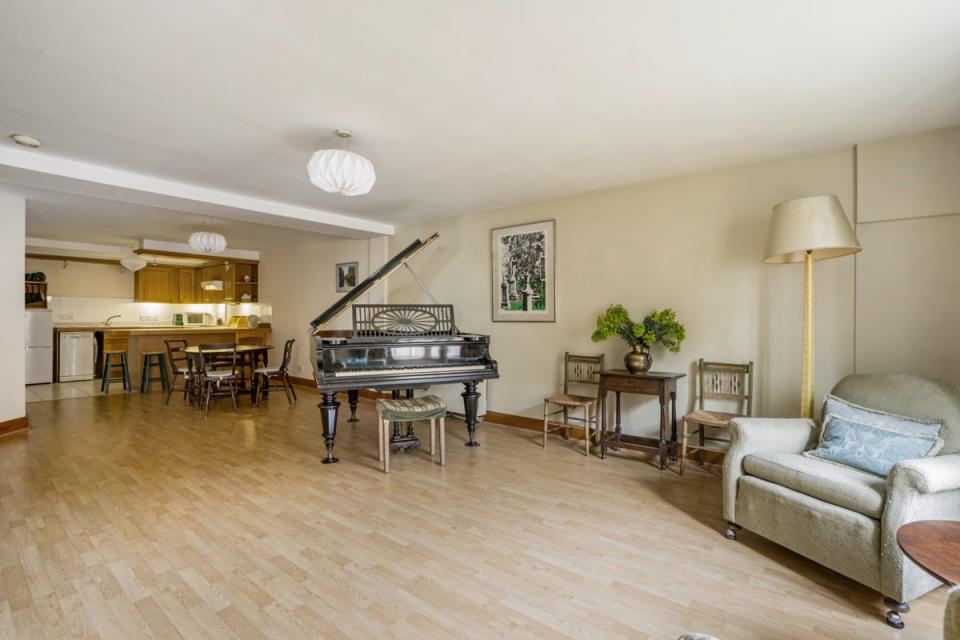
Residents have access to a daytime concierge service and a communal rooftop terrace with views over the city. There’s also underground car parking and secure bike storage.
“Java Wharf is one of the area’s most intriguing buildings,” said Job byers, founder of Anderson Rose.
“[It] has a wealth of features that make it a fantastic place to call home, with the rare benefit of private outside space and views directly onto the water.”

 Yahoo Finance
Yahoo Finance 